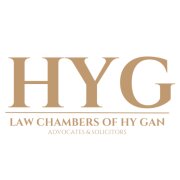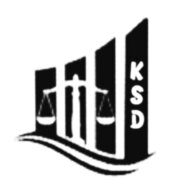Best ADR Mediation & Arbitration Lawyers in Kluang
Share your needs with us, get contacted by law firms.
Free. Takes 2 min.
List of the best lawyers in Kluang, Malaysia
About ADR Mediation & Arbitration Law in Kluang, Malaysia
Alternative Dispute Resolution (ADR) in Kluang, Malaysia, encompasses both mediation and arbitration as means of resolving disputes without resorting to traditional court litigation. ADR is encouraged as an effective way to handle conflicts with less formality and expense than courtroom proceedings. Mediation involves a neutral third party who facilitates discussions between disputing parties to help them reach a mutually agreeable solution. Arbitration, on the other hand, is more formal; an arbitrator hears evidence and then makes a binding decision. ADR is considered suitable for various types of disputes, including commercial, family, and property disagreements.
Why You May Need a Lawyer
Legal assistance in ADR mediation and arbitration can be essential for several reasons. A lawyer can provide valuable advice on the suitability of ADR for your dispute, guide you through the procedural nuances, and help protect your interests during negotiations or arbitration hearings. Common situations where you might require a lawyer include commercial contract disputes, property disagreements, family disputes such as divorce settlements, and any case where the stakes are high, necessitating expert legal counsel to ensure a fair resolution.
Local Laws Overview
The legal framework for ADR in Malaysia is primarily governed by the Arbitration Act 2005 and the Mediation Act 2012. These laws provide the legal grounding for initiating arbitration and mediation proceedings, outlining the rights, responsibilities, and powers of the parties involved. Locally in Kluang, the same national laws apply, ensuring a standardized approach across the country. It is crucial to understand how these laws might impact your specific case, especially concerning the enforceability of arbitration awards and mediated agreements.
Frequently Asked Questions
What is the difference between mediation and arbitration?
Mediation is a cooperative process where a neutral third party helps disputing parties reach a mutual agreement. Arbitration is more like a court proceeding where the arbitrator makes a binding decision.
Is ADR mandatory before going to court?
While not mandatory for all cases, many commercial contracts and some court jurisdictions encourage or require an attempt at ADR prior to litigation.
Can I have legal representation during mediation?
Yes, parties can have legal representation during mediation, although the focus is on discussion rather than formal advocacy.
How is the arbitrator chosen?
The parties typically agree on an arbitrator. If they cannot agree, an arbitrator may be appointed according to the rules outlined in their arbitration agreement or by an appointing authority.
What types of disputes are not suitable for ADR?
ADR may not be suitable for criminal cases or where a legal precedent needs to be established. Matters requiring urgent court intervention, like injunctions, may also be excluded.
Are ADR outcomes binding?
The results of arbitration are binding, while mediated agreements are binding once they are formalized in a written contract.
How long does an ADR process typically take?
ADR processes vary in length, but generally, they take less time than traditional litigation. Mediation might resolve within days or weeks, whereas arbitration could take several months.
What if one party refuses to participate in ADR?
If participation in ADR is contractual or court-ordered, failing to engage can have legal consequences. Otherwise, parties cannot be compelled, though this might influence subsequent litigation decisions.
Can ADR be used for small claims?
Yes, ADR is often encouraged for small claims as it tends to be quicker and more cost-effective.
Will there be a public record of my dispute in ADR?
Unlike court proceedings, ADR processes are typically private, and no public record is maintained, providing confidentiality.
Additional Resources
For those seeking further information on ADR in Kluang, consider reaching out to the Malaysian Bar Council or the Kuala Lumpur Regional Centre for Arbitration (KLRCA). These organizations offer resources, guidelines, and assistance related to ADR processes. Also, consulting with local law firms experienced in ADR can provide personalized insights and services.
Next Steps
If you need legal assistance in ADR mediation and arbitration, start by contacting a qualified lawyer in Kluang who specializes in ADR. Prepare all relevant documentation related to your dispute and be ready to discuss your objectives and any previous attempts at resolution. Understanding your options and the potential strategies your lawyer may suggest will help ensure the best possible outcome in your ADR proceedings.
Lawzana helps you find the best lawyers and law firms in Kluang through a curated and pre-screened list of qualified legal professionals. Our platform offers rankings and detailed profiles of attorneys and law firms, allowing you to compare based on practice areas, including ADR Mediation & Arbitration , experience, and client feedback.
Each profile includes a description of the firm's areas of practice, client reviews, team members and partners, year of establishment, spoken languages, office locations, contact information, social media presence, and any published articles or resources. Most firms on our platform speak English and are experienced in both local and international legal matters.
Get a quote from top-rated law firms in Kluang, Malaysia — quickly, securely, and without unnecessary hassle.
Disclaimer:
The information provided on this page is for general informational purposes only and does not constitute legal advice. While we strive to ensure the accuracy and relevance of the content, legal information may change over time, and interpretations of the law can vary. You should always consult with a qualified legal professional for advice specific to your situation.
We disclaim all liability for actions taken or not taken based on the content of this page. If you believe any information is incorrect or outdated, please contact us, and we will review and update it where appropriate.










